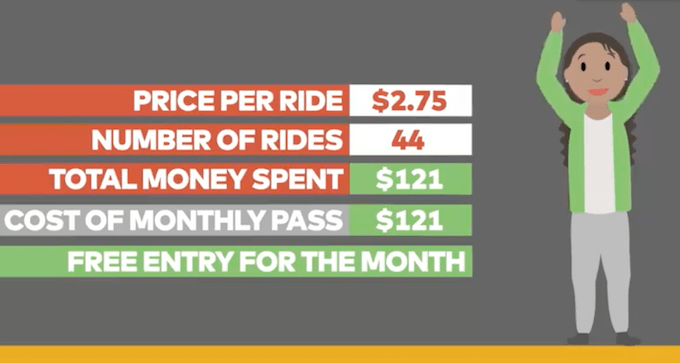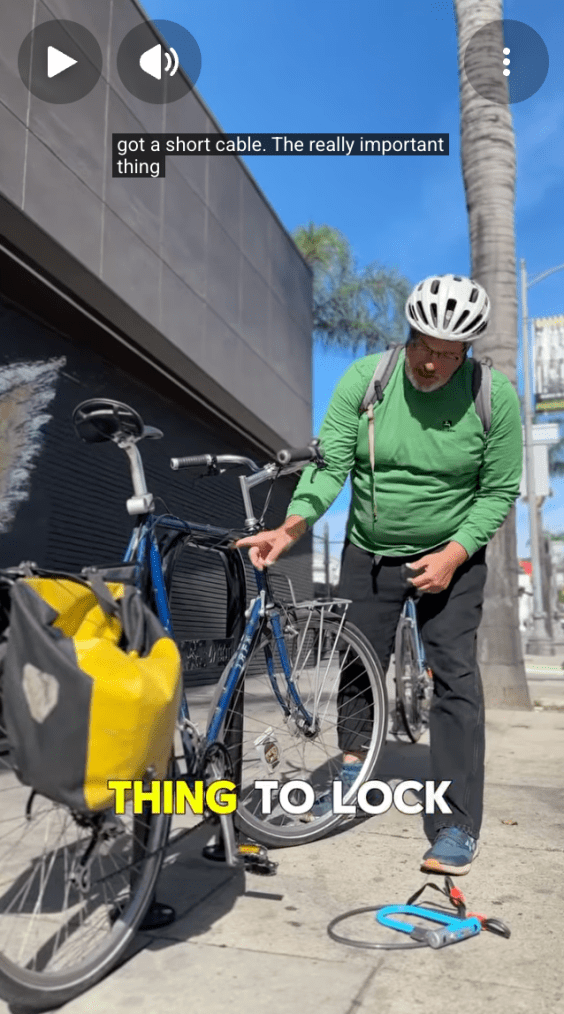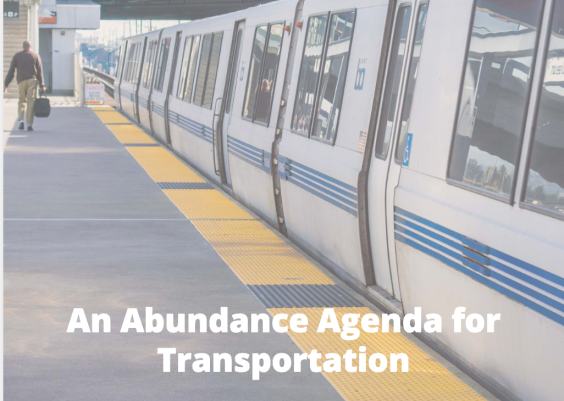What if I told you that poor people pay more to ride transit than rich people. Seems unfair, right?
But that's one of the unintended consequences of most unlimited ride passes most U.S. transit agencies offer. Weekly or monthly passes can do wonders for riders, but the upfront cost is often too much for low-income people to afford, so they end up paying more per ride than people who don't blink at the price of an unlimited.
In this video, TransitCenter explains how a policy known as "fare-capping" makes unlimited transit passes available to people who can't cover the full cost all at once.
The concept is simple: If you purchase single rides, the system still caps the price you pay in a given period. So if a single fare costs $2.50 and a daily pass costs $5, you can take three or more rides in a day and still only pay $5. Weekly or monthly spending on fares would be capped in the same way.
Last year, Portland's Tri-Met became the first U.S. agency to institute fare-capping. The agency estimated it would reduce fare revenue between 1 and 1.5 percent, but would also reduce fare evasion.
In order for fare-capping to work, agencies need to have a fare system in place that counts how many trips people make with their farecards. As more agencies adopt reloadable farecards that track people's rides, fare-capping should become standard practice, TransitCenter says.






